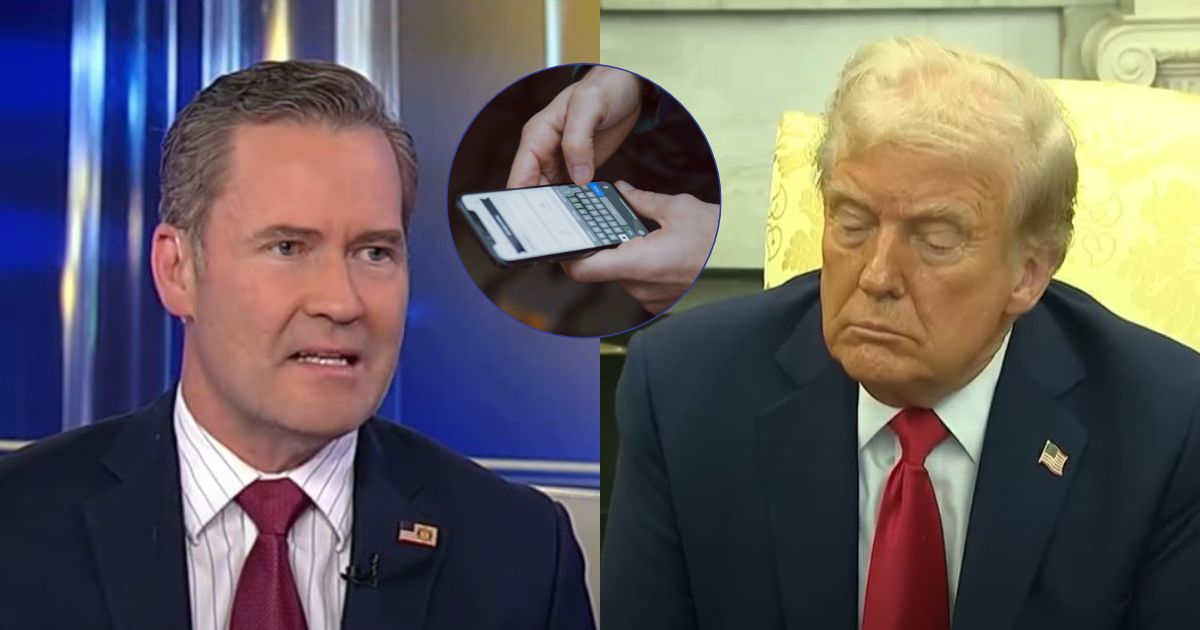Did a controversial journalist receive inside political information from the White House? In recent news, a significant security breach happened when a US journalist was wrongly added to a group chat where US officials were discussing upcoming military strikes against Yemen’s Huthi rebels; the White House confirmed the incident on March 2025.
Jeffrey Goldberg, editor-in-chief of The Atlantic, disclosed that he had accidentally been added to a Signal group chat containing several senior Trump administration officials. The group included Vice President JD Vance, Secretary of State Marco Rubio, Secretary of Defense Pete Hegseth, and others.
View this post on Instagram
As per Tyla, the National Security Advisor of the U.S., Mike Waltz, was responsible for the unexpected breach and narrated how it happened. Meanwhile, journalist Goldberg explained that he received an invitation to a group chat titled ‘Houthi PC small group’ from Waltz, who was also part of the conversation.
The texts in the group included sensitive information like upcoming strikes on Iran-backed Houthi rebels in Yemen, including information about targets, weapons the US would be deploying, and attack sequencing. After the breach, National Security Council spokesperson Brian Hughes told The Guardian, “This appears to be an authentic message chain, and we are reviewing how an inadvertent number was added to the chain.”
Consequently, Senator Chuck Schumer slammed the White House and added that this breach was “one of the most stunning breaches of military intelligence I have read about in a very, very long time.”
Likewise, Senator Chris Coons of Delaware also expressed outrage on X (formerly Twitter), where he said that the team responsible for the breach had committed a crime. He added, “We can’t trust anyone in this dangerous administration to keep Americans safe.”
Jeffrey Goldberg’s reporting in The Atlantic calls for a prompt and thorough investigation. If senior advisors to President Trump in fact used non-secure, non-government systems to discuss and convey detailed war plans, it’s a shocking breach of the standards for sharing…
— Senator Chris Coons (@ChrisCoons) March 24, 2025
Representative Pat Ryan described the leak as “Fubar” (an acronym for “fu*ked up beyond all recognition”) and sternly said that he would do a thorough investigation if the White House team failed to do so. As for President Donald Trump’s opinions, he initially claimed not to know about the breach and revealed that he only got to know about it recently.
He also dismissed The Atlantic as “not much of a magazine.” However, Trump later stood by his national security advisor, telling NBC News, “Michael Waltz has learned a lesson, and he’s a good man.”
Later, Mike Waltz responded to Trump’s remarks during an interview with Fox News‘ Laura Ingraham and admitted that he takes full responsibility for the accident. He added that he created the chat group, and his job was to make sure everything was coordinated.
Waltz suggested that the mistake might have occurred due to a mix-up in the contact list. “Have you ever had somebody’s contact that shows their name, and then you have somebody else’s number there?” Waltz said. “So, of course, I didn’t see this person in the group. It looked like someone else.”
Further in the interview, Waltz revealed that he spoke to Elon Musk to figure out how the error occurred, who told the security advisor, who said, “We’ve got the best technical minds looking at how this happened.”
He explained. “But I can tell you 100 percent — I don’t know this guy. I know him by his horrible reputation. And he really is the bottom scum of journalists.” (journalist Goldberg mainly covered foreign affairs and has always been a staunch critic of the government.).
The breach sparked significant backlash both online and offline, with lawmakers from both parties agreeing that sensitive information should not be transmitted over unsecured channels, owing to the protection of the country’s national security.









